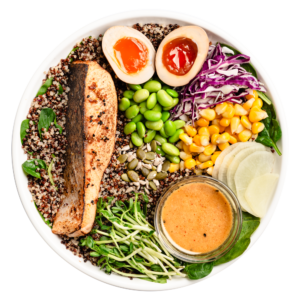Polyphenols are powerful plant compounds known for their health benefits. They play a vital role in promoting overall well-being. These compounds are abundant in fruits, vegetables, tea, coffee, red wine, and dark chocolate. Their antioxidant properties help protect the body from oxidative stress and inflammation.
Understanding Polyphenols
Polyphenols belong to a diverse group of natural compounds found in plants. They are classified into four main categories: flavonoids, phenolic acids, polyphenolic amides, and other polyphenols. Each category contains various compounds with unique health benefits.
Flavonoids are the most studied polyphenols. They include quercetin, catechins, and anthocyanins, commonly found in apples, berries, and green tea. Phenolic acids, like caffeic acid and ferulic acid, are prevalent in coffee and whole grains. Each type of polyphenol offers distinct health advantages.
Antioxidant Properties
Polyphenols are potent antioxidants. They neutralize harmful free radicals in the body. By doing so, they help reduce oxidative stress, a condition linked to chronic diseases. Oxidative stress occurs when there is an imbalance between free radicals and antioxidants in the body.
Research shows that polyphenols can improve antioxidant defenses. They activate the body’s endogenous antioxidant enzymes, enhancing the ability to combat oxidative damage. This protective effect may lower the risk of diseases such as cancer, heart disease, and neurodegenerative disorders.
Anti-Inflammatory Effects
Inflammation is a natural response of the immune system. However, chronic inflammation can lead to various health problems. It can help modulate inflammatory responses in the body. They inhibit inflammatory markers and reduce the production of pro-inflammatory cytokines.
Studies indicate that polyphenols, particularly flavonoids, can lower markers of inflammation. Regular consumption of polyphenol-rich foods can contribute to long-term health benefits. This effect may help prevent conditions like arthritis, asthma, and inflammatory bowel disease.
Cardiovascular Health
Polyphenols play a crucial role in maintaining cardiovascular health. They help improve blood circulation and lower blood pressure. Several studies demonstrate that polyphenols from sources like red wine and dark chocolate positively affect heart health.
These compounds enhance endothelial function, improving blood vessel health. They also reduce LDL cholesterol oxidation, preventing plaque formation in arteries. This protective effect may lower the risk of heart disease and stroke.
Brain Health
Emerging research suggests that polyphenols may support brain health. They can cross the blood-brain barrier, offering neuroprotective effects. Polyphenols have been linked to improved cognitive function and reduced risk of neurodegenerative diseases.
Flavonoids, particularly those found in berries, have shown promise in enhancing memory and learning. They help promote blood flow to the brain, delivering essential nutrients and oxygen. Additionally, polyphenols may reduce inflammation and oxidative stress in brain cells, protecting against neurodegeneration.
Gut Health
The gut microbiome plays a crucial role in overall health. It can positively influence gut health by promoting the growth of beneficial bacteria. They act as prebiotics, providing nourishment for healthy gut flora.
Polyphenols also exhibit antimicrobial properties, helping to control harmful bacteria in the gut. A balanced gut microbiome contributes to better digestion, immune function, and mental health. Regularly consuming polyphenol-rich foods can enhance gut health and support a diverse microbiome.
Food Sources of Polyphenols
Incorporating these into your diet is easy. Many delicious foods are rich in these beneficial compounds. Fruits like apples, berries, grapes, and cherries are excellent sources. Vegetables such as onions, spinach, and broccoli also provide significant amounts of polyphenols.
Beverages like green tea, black tea, and coffee are particularly rich in polyphenols. Dark chocolate is another tasty option, offering a high concentration of flavonoids. Whole grains, nuts, and spices like turmeric and cinnamon also contain these powerful compounds.
Tips for Maximizing Polyphenol Intake
- Eat a Rainbow of Fruits and Vegetables: Aim to include a variety of colorful fruits and vegetables in your meals.
- Choose Whole Foods: Processed foods often lack the beneficial compounds found in whole foods. Focus on incorporating whole, unprocessed foods into your diet.
- Enjoy Herbal Teas: Herbal teas are an excellent source of it. Experiment with different types to discover your favorites.
- Indulge in Dark Chocolate: Choose dark chocolate with at least 70% cocoa content. It offers a higher concentration of polyphenols and less sugar.
- Limit Alcohol Intake: While moderate consumption of red wine can provide polyphenols, excessive alcohol can have adverse effects. Enjoy in moderation.
These remarkable plant compounds enhance health through antioxidant and anti-inflammatory properties, supporting cardiovascular health, brain function, and gut health. By incorporating foods rich in these beneficial compounds into your diet, you can harness their health benefits. Embrace their power and enjoy a delicious, nutrient-dense diet that promotes overall well-being.




